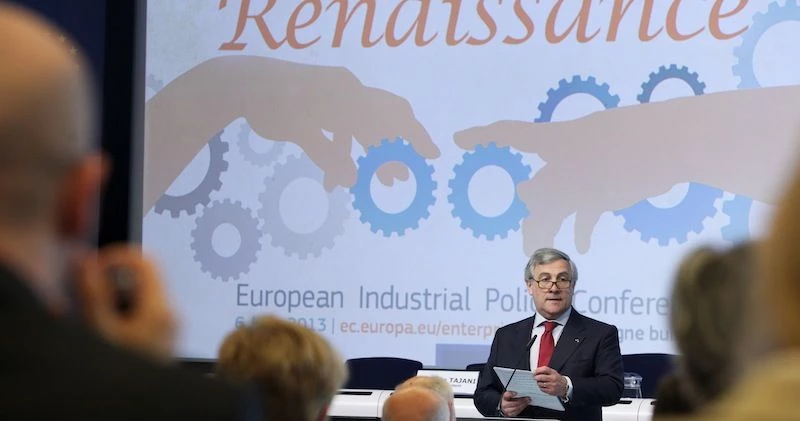
Partner Article
Europe has "learned lessons" says top civil servant
Fiscal consolidation is not all about austerity, and competitiveness should be at the forefront of Europe’s industrial strategy, a senior European civil servant has said.
Speaking to journalists recently, Carlo Corazza, the spokesperson for Antonio Tajani, Vice President of the European Commission, suggested growth orientated strategy was important as Europe had “learned lessons.”
Mr Corazza referenced the recent recommendations set out by the Commission and highlighted the growing balance that was emerging between driving down the deficit and building industry.
He said: “There is a growing political consensus on the re-industrialisation of member states. Ministers of industry have all communicated this to us.
“The United States are pushing for an industrial renaissance. Obama probably won his second term on the current policy. It is very clear what they want to achieve, and they understood that with finance and services, you cannot be competitive forever. We are starting to have the same approach.”
With that, Mr Corazza noted that more powers should be vested in the European Central Bank, to allow it to tackle job creation and growth in the same way the United States Federal Reserve or the Bank of Japan does.
The spokesman also said other countries have an energy policy that is focussed on growth while the EU is concerned with environmental conservation and climate change.
“If we are the only ones on the planet to have an energy policy focussed on climate change, really we are the idiot of the village,” he added.
“We need to change our energy policy and our climate change policy - not because climate change isn’t a priority - it’s even more important. The problem we face is that our energy intensive industries are driven away by energy policy.”
Mr Corazza also touched upon trade policy, and suggested Europe had previously been “naive,” and had not helped itself.
He said: “Europe needs a strong trade policy. 70% of growth in the next few years will come from emerging economies, and so solutions for free trade and opening of the market are crucial.
“We should also eliminate technical barriers, which are typically used to protect the likes of Japanese or US markets.
“Free trade does not mean no trade defence or to allow others to have an advantage. Free trade means the same rules for everybody. Mr Tajani used to refer to a metaphor - if we play football 11 against 11 in Madrid, we should be able to do the same in Berlin or Malaysia. Sometimes our industry plays 9 against 13.
“Free trade negotiation with the US is very important, but it will not be easy. We have to have careful talks and the main thing will be the organisation of technical standard and technical privilege.”
Mr Corazza also reiterated calls for industry-lead research, and argued that 80% of research spending goes to universities and academic institutions as just 20% is invested in commercial research.
Turning his attention to the European internal market, Mr Corazza said that competition rules were good but was sometimes too “mechanical” in its thinking, and lacked awareness of global competitiveness.
He added: “We still have a lot of work to do to have a real European internal market. After more than 50 years, we still obstacles to the physicalization of goods and services.
“We have to eliminate a lot of rule and bureaucracy that is a burden to SMEs, and Mr Tajani is working on a plan to simplify this in line with the small business perspective.”
This was posted in Bdaily's Members' News section by Tom Keighley .
Enjoy the read? Get Bdaily delivered.
Sign up to receive our popular morning National email for free.








 When will our regional economy grow?
When will our regional economy grow?
 Creating a thriving North East construction sector
Creating a thriving North East construction sector
 Why investors are still backing the North East
Why investors are still backing the North East
 Time to stop risking Britain’s family businesses
Time to stop risking Britain’s family businesses
 A year of growth, collaboration and impact
A year of growth, collaboration and impact
 2000 reasons for North East business positivity
2000 reasons for North East business positivity
 How to make your growth strategy deliver in 2026
How to make your growth strategy deliver in 2026
 Powering a new wave of regional screen indies
Powering a new wave of regional screen indies
 A new year and a new outlook for property scene
A new year and a new outlook for property scene
 Zero per cent - but maximum brand exposure
Zero per cent - but maximum brand exposure
 We don’t talk about money stress enough
We don’t talk about money stress enough
 A year of resilience, growth and collaboration
A year of resilience, growth and collaboration